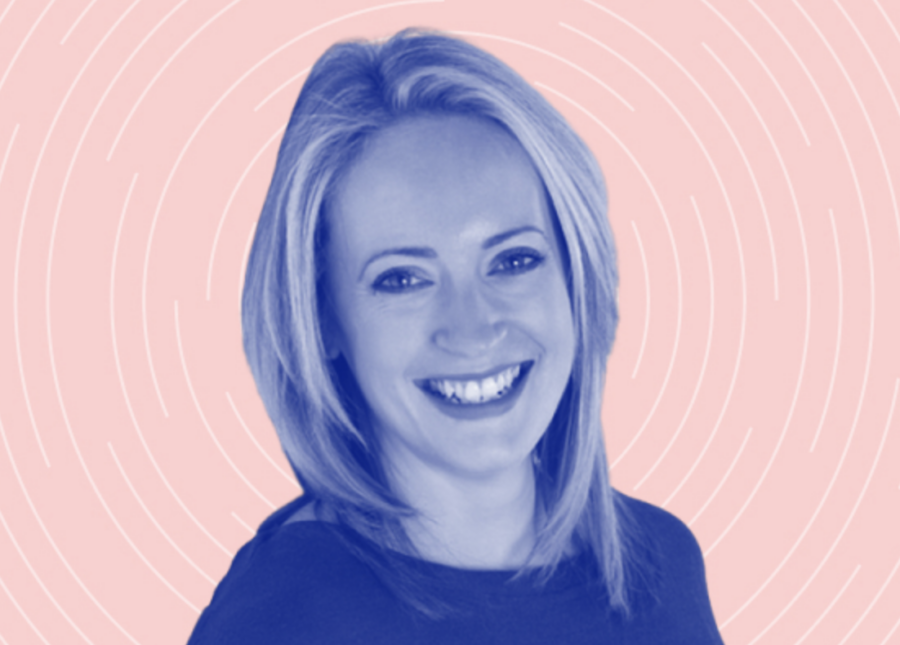What Luno is doing to #BreakTheBias

An interview with Luno’s award-wining Chief People Officer, Kelly Jackson
1. How is Luno approaching gender imbalances in its workforce?
Great question, and one that relates directly to the theme #BreakTheBias from this year’s International Women’s Day. Challenging bias, and introducing People & Culture principles or policies that directly address or mitigate these biases supports the creation, and success, of more diverse teams.
At Luno, our mission of putting the power of crypto in everyone’s hands means diversity is embedded in our DNA. Our customers are global, and so are we. In order to succeed in our mission, our teams need to be able to empathise with our customers’ needs and so when we consider our Moontality value of one mission, one team, we really mean, one mission, one diverse team!
However, I think it is important to recognise that when we discuss diversity, we need to frame the conversation through the lens of intersectionality. We are never just one thing. I am, for example, a cis-gendered female, white, approaching 40 (which my daughter would say was very old!), middle class and able-bodied. So what we aspire to within Luno is to consider our People experiences, policies and principles through an intersectional lens. In general, we’re a ‘principles over policies’ type of company and we create principles to be supportive of gender equality.
When building our principles, one of the most important approaches we can take is to step back and ask: “what are the barriers to increasing the diversity of the team, and what are we, as a company, doing to change this?” Reframing the narrative from (as an example) “women don’t want to work as Engineers”, to “what can Luno do to be more attractive to female Engineers?” is the starting point for our work in this space.
Creating gender-balanced teams
Luno also straddles the industries of both Finance and Technology, which are historically gender-balanced towards men, especially the more senior the role in an organisation, and within Tech teams, so we need to work hard to create a diverse community. Within Luno, 25% of our senior team identify as female, as do 45% of our next level of leadership, and across Product & Engineering, we have 26%, with over 50% within our Product team itself.
In the last 12-18 months we’ve worked hard to set the foundations for gender-balanced teams across Luno. Our overarching principle here is “to be as attractive to the talent we want without trying to be everything to everyone”. Initiatives linked to this include looking at the language of our job adverts and how we describe the company and skills we are looking for, ensuring gender-balanced interview processes and creating recruitment marketing campaigns such as our Women in Tech series to really showcase what we have to offer. We also don’t let personal circumstances, such as being on maternity leave or being pregnant, get in the way of hiring people we want to join our team, which sadly is very often not the case for many organisations.
Attracting top talent
The work we have done under our talent attraction strategy, specifically in Product and Engineering has seen a real improvement in the gender balance of these teams.
However, it isn’t much good creating a brand and candidate experience that builds diverse teams, if when Lunauts start their career with us, their experience doesn’t match up to what we sold them at the interview stage! So let’s dive into a couple of other principles we believe are supporting both the creation and importantly, the sustainability of gender-based teams.
Our Remote but Reachable work policy
One of the most impactful ones is our Remote but Reachable policy. This is the ultimate in providing Lunauts with the flexibility in when, how and where they get work done. Whilst we know that overwhelmingly flexibility at work supports women, especially mothers who still tend to be the primary caregiver, actually we’re really proud of how this policy supports diversity beyond gender.
Giving all primary caregivers the leave they need
When we think about parents, we are also proud of our primary caregiver leave which gives the same paid time off to the primary caregiver irrespective of gender or how you choose to grow your family. We recognise that how families are built is beautifully different and want to support our Lunauts, irrespective of gender.
Specifically, we want to break the bias that child care is predominantly the role of the mother, and as research would show, mothers suffer what’s known as the “motherhood penalty”. This is a particular policy I am looking forward to improving even further as I deeply believe that normalising fathers taking extended leave off to raise their children, much like the Scandinavian countries have done, will support gender-balanced teams.
Rewarding talent fairly
Finally, one other area I would draw upon in support of gender-balanced teams is reward. When we think of bias that can be experienced when deciding, or discussing salaries, bonuses or benefits, this is an area that is often very emotive and often perceived to be unfair and opaque. So we put a lot of effort into how we mitigate unfairness and bias in this area. Everything from having reward principles such as “those who shout loudest will not be paid more just because they do so” and “our salary ranges are set by the market”, to working closely with managers to challenge pay decisions where we feel it is required.
Our bonus scheme means every Lunaut gets the same number of months’ bonus if Luno does well, which reflects our ‘One Mission, One Team’ Moontality value, creating a sense of collective responsibility for the success of Luno. It also means we are not gamifying our performance management experience thus allowing managers and Lunauts to focus their performance conversations on development, and not on peacocking their successes simply to get a larger slice of the bonus pie.

2. Why is #BreakTheBias important to you?
As human beings we all have biases, yet the risk to equality is that they go unchecked and unchallenged and we accept the status quo. Even at the weekend, I was in a taxi making polite chit chat with the taxi driver, and as the topic turned to work, the driver turned to me with a look of surprise and said “oh, so you work too then?” Bias is all around us, even on a Friday night out!
The reason #BreakTheBias is so important to me is because I deeply believe that we cannot realise the collective potential of humans, our teams, and ourselves if we let biases go unchecked and unchallenged. Bias tends to limit us to how things have always been, not how they could be. And as a mum to a daughter approaching her teenage years, I want to raise her to be aware of biases, both her own, and those of the world around her, and challenge them. To ask “why not?” as a call to action when running into bias and pushing through it.
3. What challenges have you faced in your career and how have you overcome them?
Goodness, where do I start? I think the biggest challenge has been the expectation I had on myself to be perfect, and to juggle single parenthood, well single-handedly, not really asking for support or flexibility because of the pretence of perfectionism! I’ve definitely made my life a lot harder than it needed to be, and the lessons I’ve learnt are: firstly, you don’t need to know everything, and secondly, there is going to be someone who knows more than you whatever the problem, so ask for help! That has saved me a lot of time, and my sanity!
4. What career advice would you give to your younger self?
It is fine not to know “what you want to be when you grow up”, in fact, I would say very rarely is there one answer to this. Careers are now more a collection of experiences and learning opportunities than a succession of titles within a well-defined hierarchy. So I would say to my younger self, just chill out! Embrace the different opportunities that come your way and remember that going “up” is not always better.
Also, try and get a mentor, or better yet a sponsor, especially as a female. The key difference in my experience is a sponsor will open up opportunities for you; they are likely to be the ones to advocate for you; introduce you to people in their network; recommend you for roles, and be an additional support in the advancement of your career. Mentors are also fantastic and often can be a sponsor. Just don’t restrict yourself to thinking you need to have a mentor within the same company as you, which leads me to my next point…
Which is, network! Now being honest, when I thought of networking as something I had to do in order to get something of value from another person I hated the idea. You’d find me at the back of a workshop or conference, pretending to look busy on my phone so I didn’t have to engage with anyone, because it all seemed so, well, fake.
When I reframed this to be just another opportunity to learn something new, to have a conversation with someone I hadn’t met before, or even be useful to someone else by sharing my thoughts, then it became easier. Not easy, because I still find small talk hard, but easier. It also helped when I approached networking like a four-year-old approaches play, you can check out the LinkedIn article I wrote on this here.
But although there is a lot of advice I’m happy to pass on, I still seek guidance and counsel from the mentors and peers I have surrounded myself with. We never know it all, and an outside perspective is invaluable.
 Discover
Discover Help Centre
Help Centre Status
Status Company
Company Careers
Careers Press
Press

